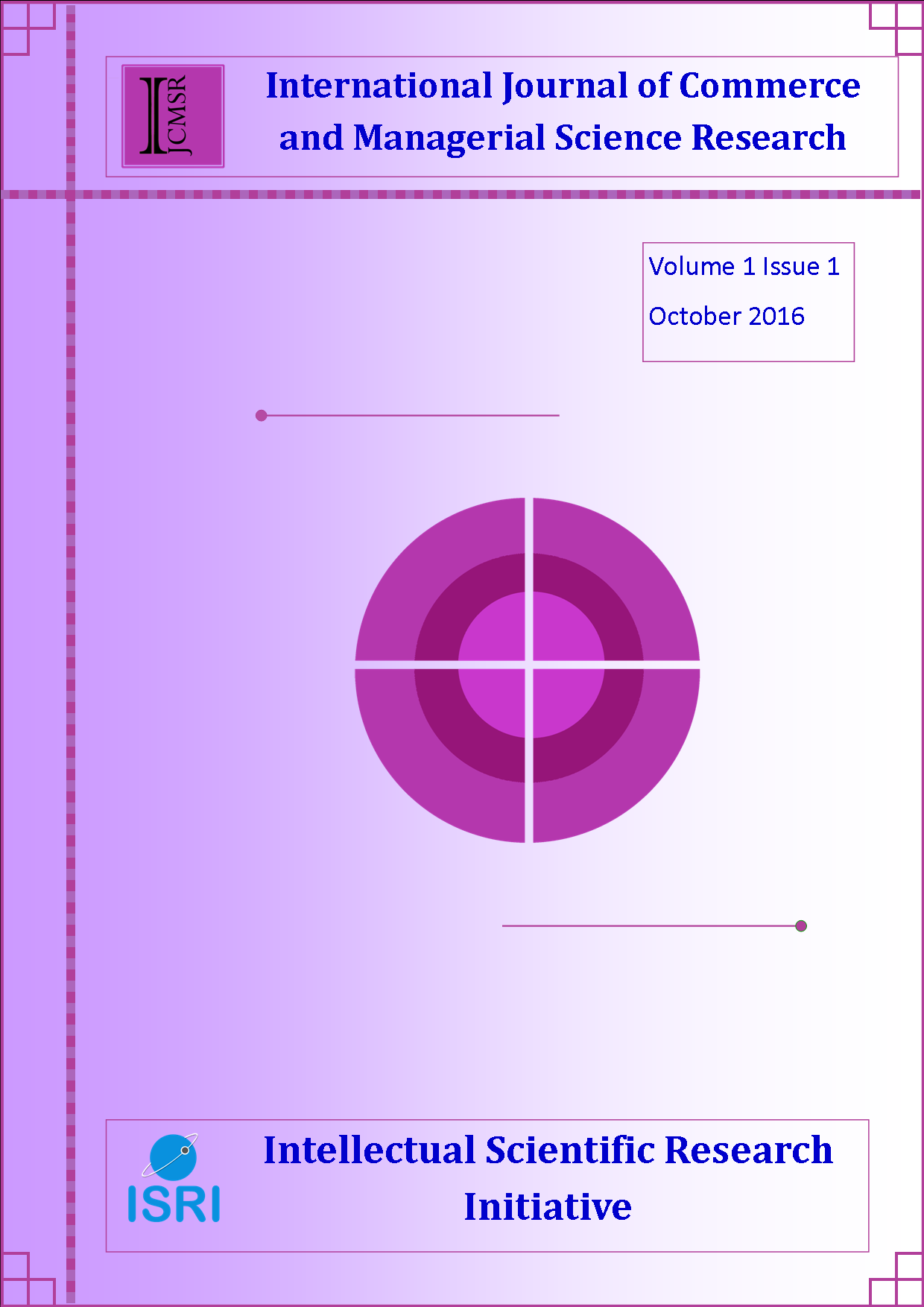
News
Impact of Loan Taking Behaviour On Financial Literacy Among Self Help Group Women Members
Authors : S. Suganya Volume 1 Issue 1 Pages: 1 - 7
ABSTRACT - Micro credit projects are a fundamental source of providing financial assistance to SHG’s beneficiaries. Lending to women has become an important principle in micro credit to empower the women. Financial literacy should make SHG members to take Financial Literacy is the potential to take hold of, monitor and effectively use economic belongings to develop the health and monetary defense of oneself, and trade and also for improving the understanding of the financial service providers. The purpose of this article to find out the impact of loan taking behaviour on financial literacy among the self help group women members in Virudhunagar District of Tamil Nadu.The data were collected from 400 SHG women members randomly from 11 Blocks of Virudhunagar District using Financial Literacy Scale Questionnaire which were developed and standardized by the investigator. The data were analyzed using f-test in order to find out the results and conclusions. Finally the study reveals that Loan taking behaviour plays a very significant and vital role on financial literacy of the self help group women members in Virudhunagar District.
References
- Lusardi, A., Mitchell, O., & Curto, V. (2010). Financial Literacy among the Young. Journal of Consumer Affairs. 44(2), 358-380.
- Eikmeier, B.J. (2007). Trends drive opportunities for financial planning for women. Journal of Financial Planning, 20(6), 6.
- Njeru, P. W., Ongesa, N. T., & Mutegi, H. K. (2015). Financial Literacy and its iImpact on Loan Repayment by Small and Medium Enterprenuers. International Journal of Economics, Commerce and Management. 3(3),1-28.
- Hibbert, J.R., & Beutler, I.F. (2001). The effects of financial behaviors on the quality of family life. Federal Reserve Bulletin, 89(7), 309-322.
- Hilgert, M.A., Hogarth, J.M., & Beverly, S.G. (2003). Household financial management: The connection between knowledge and behavior. Federal Reserve Bulletin, 89, 309-322.
- Hung, A., Yoong, J., & Brown, E. (2012). Empowering Women Through Financial Awareness and Education. OECD Working Papers on Finance, Insurance and Private Pensions, 14, 1.
- Joo, S.H. (2008). Personal Financial Wellness. In Handbook of consumer finance research (pp. 21-33). Springer NewYork.
- Lusardi, A. (2007). Financial literacy and retirement preparedness: Evidence and implications for financial education. Business Economics, 42(1), 35-44.
- Lusardi, A., & Tufano, P. (2009). Debt literacy, financial experiences, and over indebtedness (No. w14808). National Bureau of Economic Research.
- Sonia, M., & Abraham, A. (2006). Financial Literacy Research: Current Literature and Future opportunities. http://ro.uow.edu.au/commpapers/223.
- Sabri, M.F., Cook, C.C., & Gudmunson, C.G. (2012). Financial well-being of Malaysian college students. Asian Education and Development Studies, 1(2), 153-170.
- Huston, S.J. (2010). Measuring Financial Literacy. The Journal of Consumer Affairs, 44(2), 296-316.
- Afrin, S., Islam, N., & Ahmed, S.U. (2008). A Multivariate Model of Micro Credit and Rural Women Entrepreneurship Development in Bangladesh. International Journal of Business and Management, 3(8), 169-185.
- Xiao, J. J. (2008). Applying behavior theories to financial behavior. In Handbook of consumer finance research (pp. 69-81). Springer New York.

